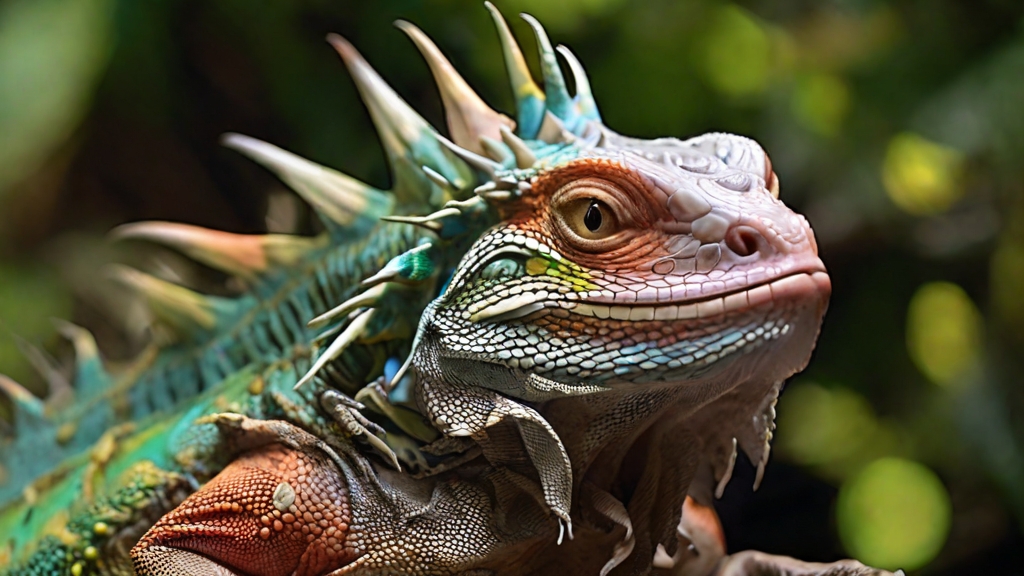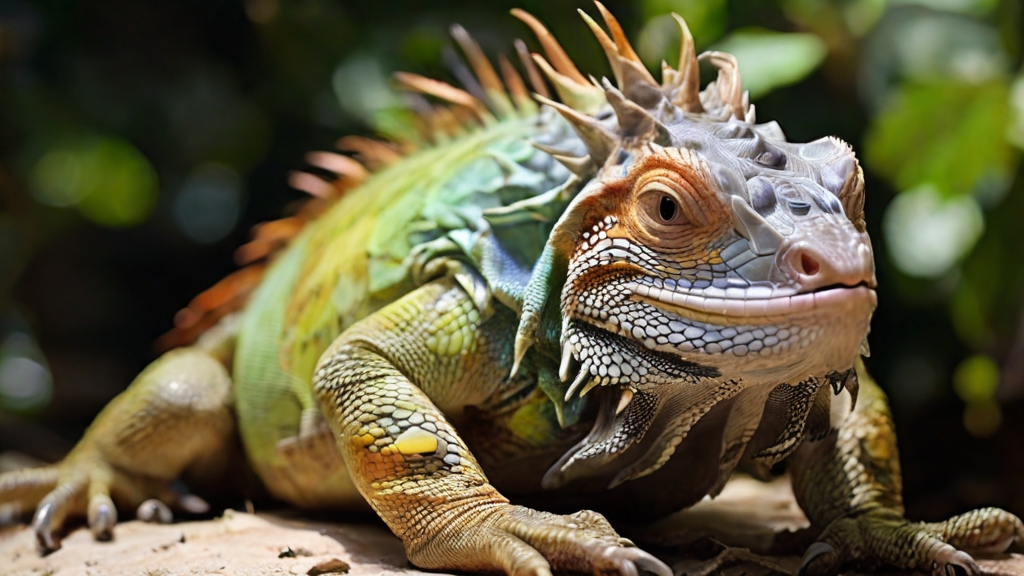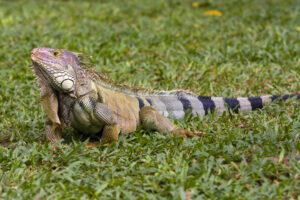When it comes to reptiles, iguanas are a popular choice for pet owners and enthusiasts alike. However, there are many myths surrounding these creatures, and one of the most common questions asked is: are iguanas poisonous?
In this article, we will explore the answer to this question in-depth and debunk some of the common misconceptions surrounding iguanas.
Introduction: Understanding Iguanas
Iguanas are a type of reptile that belong to the family of lizards. They are known for their unique appearance, with long tails and spiny crests along their backs.
Iguanas are native to Central and South America, and they come in a variety of colors and sizes. Some iguanas can grow up to 6 feet in length, while others are smaller and more manageable as pets.
Iguanas and Poisonous Plants
One of the common misconceptions surrounding iguanas is that they are poisonous. While iguanas themselves are not poisonous, they do have a tendency to eat poisonous plants.
This is because iguanas are herbivores and they eat a variety of fruits, vegetables, and plants. Some of the plants that iguanas commonly eat are toxic to humans and other animals.
The Poisonous Iguana Myth: Debunking Misconceptions
Contrary to popular belief, iguanas are not poisonous. There is no venom or toxin in their saliva, nor do they secrete any poisonous substances through their skin.
The belief that iguanas are poisonous likely stems from their diet and the fact that they may eat poisonous plants.
The Risks of Iguana Bites
While iguanas are not poisonous, they do pose a risk to humans in other ways. One of the main risks associated with iguanas is their powerful jaws and sharp teeth. If an iguana feels threatened or cornered, it may bite in self-defense.
Symptoms of Iguana Bite and Poisoning
If you are bitten by an iguana, there are several symptoms that you may experience. These can include pain, swelling, and redness around the bite area.
In some cases, there may also be bleeding or pus discharge from the wound. If you have been poisoned by a plant that an iguana has eaten, you may experience nausea, vomiting, and diarrhea.
First Aid for Iguana Bites and Poisoning
If you are bitten by an iguana, it is important to clean the wound thoroughly with soap and water. You should then apply an antiseptic cream or ointment to the bite area.
If the bite is deep or if you experience any signs of infection, such as fever or chills, you should seek medical attention immediately. If you believe you have been poisoned by a plant, seek medical attention immediately.
Preventing Iguana Bites and Poisoning
The best way to prevent iguana bites and poisoning is to avoid contact with these creatures. If you do encounter an iguana, do not attempt to handle it, and give it space to move away.
If you have iguanas as pets, make sure to keep them in a secure and safe enclosure, and handle them with care.
It is also important to keep any toxic plants out of reach of your iguanas to prevent them from consuming them.
Iguanas and Salmonella: Understanding the Risks
Another potential risk associated with iguanas is the risk of salmonella infection. Iguanas are known carriers of salmonella bacteria, which can cause serious illness in humans.
People who come into contact with iguanas or their feces may be at risk of contracting salmonella.
How to Prevent Salmonella from Iguanas
To prevent salmonella infection from iguanas, it is important to practice good hygiene. Wash your hands thoroughly after handling your iguanas, and avoid touching your face or mouth.
Make sure to clean and disinfect your iguana’s enclosure regularly, and dispose of any feces or bedding material safely and hygienically.
Caring for Iguanas as Pets
If you are interested in keeping iguanas as pets, it is important to understand their unique needs and requirements. Iguanas require a specific environment, including a warm and humid habitat, a UVB light source, and a diet that is rich in calcium and other nutrients.
They also require regular veterinary care and attention to ensure that they stay healthy and happy.
Conclusion
In conclusion, iguanas are not poisonous, but they do pose certain risks to humans, including the risk of bites and salmonella infection.
By understanding these risks and taking appropriate precautions, you can safely and responsibly care for iguanas as pets or avoid contact with them in the wild.
FAQs
Can iguanas kill humans with their bites?
No, iguanas cannot kill humans with their bites. While their bites can be painful and may cause infection, they are not lethal.
Can iguanas transmit diseases to humans?
Yes, iguanas can carry salmonella bacteria, which can cause serious illness in humans.
What do iguanas eat?
Iguanas are herbivores and eat a variety of fruits, vegetables, and plants.
How long do iguanas live?
Iguanas can live for up to 20 years or more in captivity with proper care.
Are iguanas good pets?
Iguanas can make good pets for experienced reptile owners who are willing to provide them with the proper care and environment they need.




